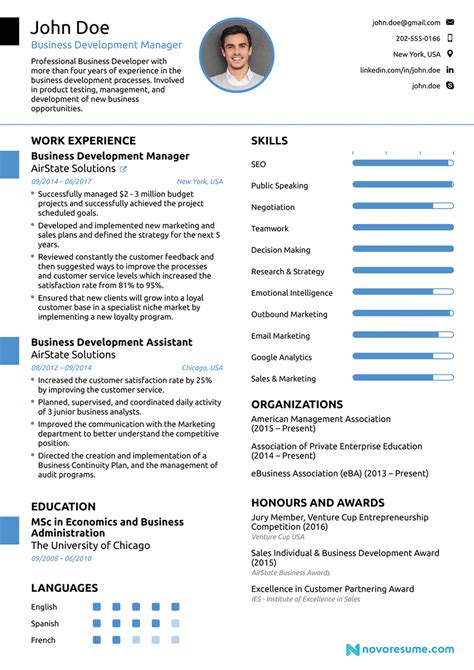Optimal Professional Resume Samples

A resume is a vital component of every job application process. It serves as a representation of your professional skills, experiences, and achievements summarized in a concise and attractive manner. A well-crafted resume can be the difference between landing your dream job and getting lost in a sea of applicants. In this post, we will explore the optimal professional resume samples that will help you stand out from the competition and increase your chances of securing your desired role.
1. Tailor your resume to the job
One of the most crucial aspects of crafting an effective resume is tailoring it to the specific job you are applying for. You need to customize your resume to match the job requirements and the company’s culture. This ensures that your resume is relevant to the job and increases your chances of getting selected.
2. Use a professional format
The format of your resume is important as it can help you stand out from the competition. Use a professional format that is easy to read and understand. Use bullet points, headings, and subheadings to organize your resume and make it scannable for recruiters.
3. Highlight your achievements
Your achievements are a testament to your skills and capabilities. Highlight them in your resume to show your potential value to the company. Use metrics and numbers to quantify your accomplishments, such as “increased sales by 20%” or “managed a team of 10 employees.”
4. Showcase your relevant skills
Make sure to include your most relevant skills in your resume. These are the skills that match the job requirements. Be specific and provide examples of how you have used these skills in your previous roles.
5. Include a professional summary
A professional summary is a brief statement at the beginning of your resume that summarizes your professional experience and qualifications. It should be tailored to the specific job and highlight your unique value proposition.
6. Use keywords
Use keywords that are relevant to the job in your resume. These are the words and phrases that recruiters and hiring managers look for when scanning resumes. Include them in your resume to increase your chances of getting selected.
7. Proofread your resume
Before submitting your resume, make sure to proofread it carefully. Check for any spelling or grammatical errors, and ensure that your resume is free from typos. A professional and error-free resume shows attention to detail and can make a great first impression.
8. Include relevant experience
Include only the most relevant experience in your resume. Focus on the experience that matches the job requirements and the company’s culture. Avoid including irrelevant experience that can distract from your overall message.
9. Keep it concise
Your resume should be concise and to the point. Avoid using long paragraphs or excessive detail. Stick to the most relevant information that showcases your skills and experiences.
10. Use a professional tone
Your resume should reflect a professional tone that matches the job requirements and the company’s culture. Avoid using slang or informal language. Use a formal tone that showcases your professionalism.
Conclusion
An optimal professional resume is essential to securing your desired role. By tailoring your resume to the job, using a professional format, highlighting your achievements and relevant skills, including a professional summary, using keywords, proofreading your resume, including relevant experience, keeping it concise, and using a professional tone, you can create a resume that stands out from the competition and increases your chances of getting selected.
FAQs
What should you include in your resume?
Your resume should include your most relevant experience, skills, and achievements. It should also include a professional summary, keywords, and a professional format.
How long should your resume be?
Your resume should be one to two pages long, depending on your experience and the job requirements.
Should you tailor your resume to the job?
Yes, tailoring your resume to the job is essential. It ensures that your resume is relevant to the job and the company’s culture, increasing your chances of getting selected.
What tone should you use in your resume?
You should use a professional tone that matches the job requirements and the company’s culture. Avoid using slang or informal language.
How do you proofread your resume?
Proofread your resume carefully, checking for spelling and grammatical errors, and ensuring that it is free from typos. You can also ask a friend or colleague to review your resume for you.
